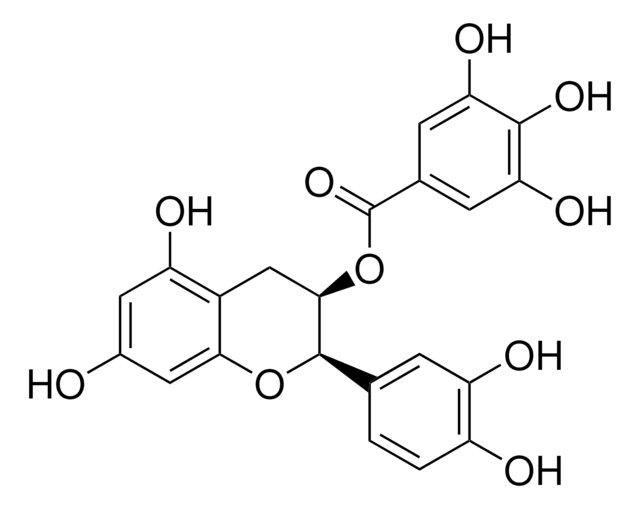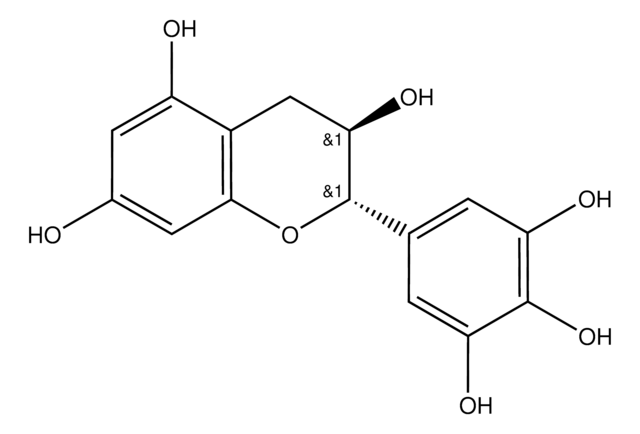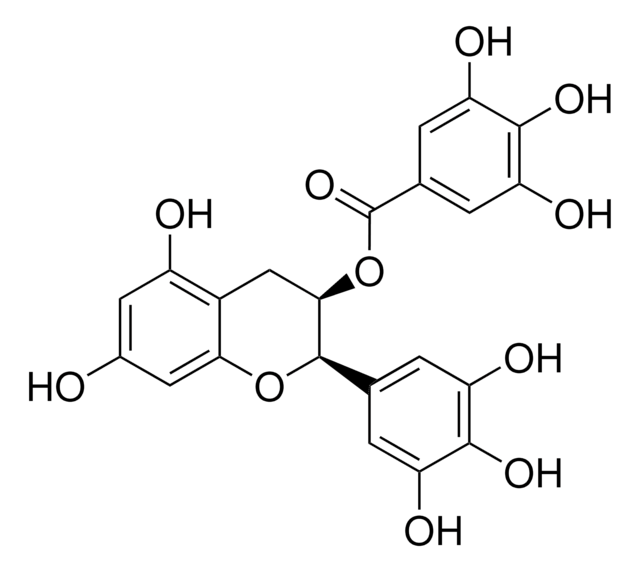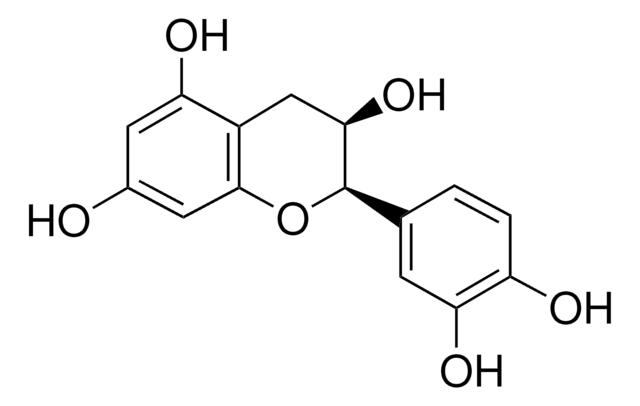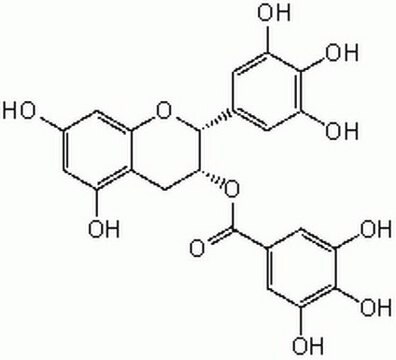08108
(−)-Epigallocatechin
analytical standard
Synonym(s):
(−)-cis-2-(3,4,5-Trihydroxyphenyl)-3,4-dihydro-1(2H)-benzopyran-3,5,7-triol, (−)-cis-3,3′,4′,5,5′,7-Hexahydroxyflavane
About This Item
grade
analytical standard
Quality Level
Assay
≥90% (HPLC)
technique(s)
HPLC: suitable
gas chromatography (GC): suitable
application(s)
food and beverages
format
neat
SMILES string
O[C@@H]1Cc2c(O)cc(O)cc2O[C@@H]1c3cc(O)c(O)c(O)c3
InChI
1S/C15H14O7/c16-7-3-9(17)8-5-12(20)15(22-13(8)4-7)6-1-10(18)14(21)11(19)2-6/h1-4,12,15-21H,5H2/t12-,15-/m1/s1
InChI key
XMOCLSLCDHWDHP-IUODEOHRSA-N
Looking for similar products? Visit Product Comparison Guide
General description
Application
- Fruit juices by high-performance liquid chromatography with diode array detection (HPLC-DAD) combined with electrospray ionization (ESI) and triple quadrupole mass spectrometry.
- Green tea standard reference materials (SRMs) by LC coupled with particle beam/electron ionization mass spectrometry (LC-PB/EIMS).
- Tea extracts by HPLC with electrochemical detection (ECD) and in plant-based foods by HPLC-DAD.
Biochem/physiol Actions
Storage Class Code
11 - Combustible Solids
WGK
WGK 3
Flash Point(F)
Not applicable
Flash Point(C)
Not applicable
Personal Protective Equipment
Choose from one of the most recent versions:
Already Own This Product?
Find documentation for the products that you have recently purchased in the Document Library.
Customers Also Viewed
Articles
Antioxidants protect biological systems from oxidative damage produced by oxygen-containing free radicals and from redoxactive transition metal ions such as iron, copper, and cadmium.
Our team of scientists has experience in all areas of research including Life Science, Material Science, Chemical Synthesis, Chromatography, Analytical and many others.
Contact Technical Service